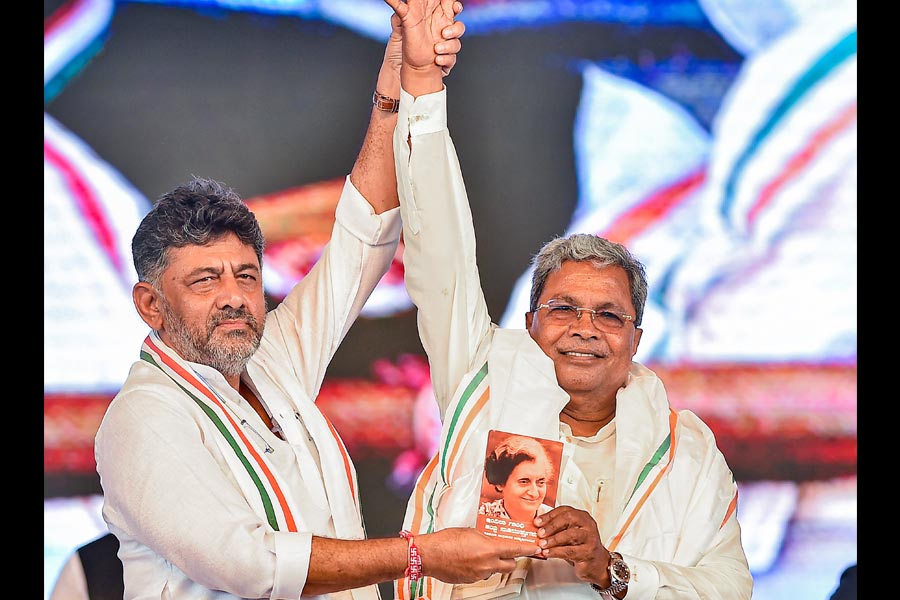The Congress’s triumph in Karnataka was dramatic in terms of scale. The party’s anointment of the chief minister has had, the media insist, its share of dramatic moments as well. In the days that led to the Congress’s announcement of P.C. Siddaramaiah as Karnataka’s chief minister and D.K. Shivakumar as his deputy, there was, the grapevine insists, competitive — acrimonious — parleys between the two titans to bag the top post. The Congress, unsurprisingly, has denied such speculation. The Congress’s vulnerability to feuding as well as the allegedly frosty ties between Mr Siddaramaiah and Mr Shivakumar added to the feverish conspiracy theories. In the end, the Congress moved relatively quickly by its own standards and arrived at an arrangement that appears to be prudent. Mr Shivakumar’s presence in the cabinet means that Mr Siddaramaiah is unlikely to have an unfettered say over policy and administrative decisions. The shared power pie is also unlikely to upset the delicate balance of caste interests between the Lingayats and the Vokkaligas. If they were to work together seamlessly, the Congress could benefit widely on account of their individual expertise: Mr Siddaramaiah is an able administrator with a mass appeal that cuts across demographic groups. Mr Shivakumar, on the other hand, is an organisational asset and renowned for his fire-fighting abilities. The two should now get to work quickly to make sure that the Congress delivers on its welfare pledges and root out corruption. If they succeed, the Congress could reap rich dividends in Karnataka in the general elections of 2024.
The quick and amicable resolution of what could have been an ugly spat should now inspire the Congress to douse the home fire in poll-bound Rajasthan. The sabre rattling between Ashok Gehlot and Sachin Pilot is likely to impair the Congress’s chances of a return to power there unless the party acts now. Could the deliberations in Karnataka provide a possible template? Karnataka revealed another silver lining that the Congress must not ignore: the decisive and nimble strategising of the party president, Mallikarjun Kharge. Mr Kharge’s deft handling of competing — conflicting — interests frees up Rahul Gandhi, the Congress’s most popular leader, to engage with the people, something he does best. The Bharat Jodo Yatra’s positive impact on the elections shows that Mr Gandhi’s skills at mobilisation, combined with Mr Kharge’s organisational finesse, could add potency to the Congress’s political appeal.










